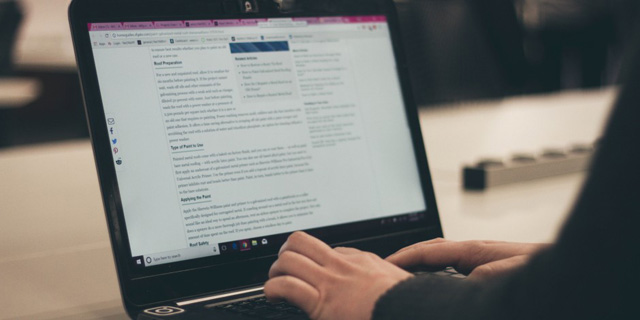
Trust is an important aspect of all of our relationships and how we interact with each other. A relationship refers to the way two or more people connect and interact with each other. Without trust, we would have to exercise caution over our conduct, from the words we say to the actions we take. This would apply to various groups of people, whether friend or stranger.
However, there are also times that we do need to exercise caution, even when we might trust someone or something. A good reason to do this is to prevent or minimise the impact of accidents.
For example, when having a meal with friends or family, I trust that the food was prepared hygienically. However, they might have accidentally bought food that was off, undercooked the meat, or accidentally mixed in ingredients that I might be allergic to. Exercising caution in these circumstances is beneficial and something we should do all the time. Even the early Christians exercised caution when Paul was telling them the news of Jesus (Acts chapter 17, verse 10 to 12)!
As Christians, there are many things in our society that we might blindly trust too much and we should instead exercise more caution. This is because accidents happen or the other parties or groups that we are interacting with might not be doing so for our best interest. Here are 5 groups that we need to exercise caution with:
1. Politicians
Politicians are constantly slammed by the media and the public for being dishonest. This is perceived to be more apparent at election time. As witnessed during our recent Federal election, both sides called each other dishonest and “full of lies” leaving the general public to form their own opinion.
Was it lies? Or was it a shaped marketing message? We need to listen to what they have to say,verify their claims and do our own research as political parties might even get it wrong by accident!
2. Marketing
It is not just the politicians that are in the business of persuasions.Very smart and intentional messaging also occurs in everyday marketing campaigns from private companiesaiming to create anxiety that something might be wrong or could be better if we purchase their products.
For example, a quick search of “fined for misleading” will show story after story of companies being fined for misleading their customers all around the world. It is important for us to know what we signed up to, are entitled to and what our laws stipulate and not necessarily take things at face value or what is being said by companies.
3. Media
Even our reporters are not immune to being fully honest or without an agenda. The term “fake news” was used and popularised by President Donald Trump during a press conference to talk about how events were being incorrectly reported or had bias to them.
When it comes to politics, thereporter’s bias (this is normal) is reflected in the article regardless of which side of politics they are on. Knowing this, we need to make sure we are reading a variety of media perspectives and even go direct to the source they are quoting or referring to in order to get the full story and make up our own mind.
4. Government
We normally turn to the government to help us enforce against intentionally deceptive behaviour. With bodies like APRA and the ACCC, Australia has many good institutions which help keep us safe from fraud. However, is our government unbiased and trustworthy? Not all the time.
Whilst there are many checks and balances that our government and our Constitution have to protect and serve Australians, there are still bad actors, fraud and corruption within government. A recent example was how an entire local council was sacked due to fraud. We should participate in our society and communities to help keep those we elect accountable.
5. Big tech and big companies
How about big tech companies and private enterprise? With the Banking Royal Commission exposing a lot of dishonestbehaviours and policies, we must exercise care when interacting with certain businesses knowing that there are a number of people in those industries who might be ruining the reputation of the industry as a whole.
Additionally, with the Facebook Cambridge Analytica scandal, even our private data might not be safe in the hands of our biggest and most advanced companies. Apple sees this as an opportunity and is positioning itself as a company which values privacy. Again, we must not blindly trust in this and be careful about the information we share and save online.
Is the world a scary place?
There are many good things in our societies that are ruined by people who do not seek to love their neighbour. The five points above are a result of human sin, resulting in broken trust. Regardless of what people, structures or rules we put in place, the inherent nature of sin will mean that positions of power can be abused.
As Christians, we need to make sure we are exercising caution and seek to live a life that follows God’s way. We need to tell others that the solution to sin is in Christ (1 Peter chapter 3, verse 18).We musttrust in God in all that we do and that He will be the final judge over everything (2 Peter chapter 3, verses 11 to 14).
 Brandon Tsang is a Sydney-based writer currently working in IT. He studied Marketing and Economics at UNSW and loves to spend his spare time hiking, playing volleyball or watching Netflix.
Brandon Tsang is a Sydney-based writer currently working in IT. He studied Marketing and Economics at UNSW and loves to spend his spare time hiking, playing volleyball or watching Netflix.
Brandon Tsang’s previous articles may be viewed at http://www.pressserviceinternational.org/brandon-tsang.html

Brandon Tsang is a Sydney-based writer currently working in IT. He studied Marketing and Economics at UNSW and loves to spend his spare time hiking, playing volleyball or watching Netflix.
Brandon Tsang’s previous articles may be viewed at http://www.pressserviceinternational.org/brandon-tsang.html